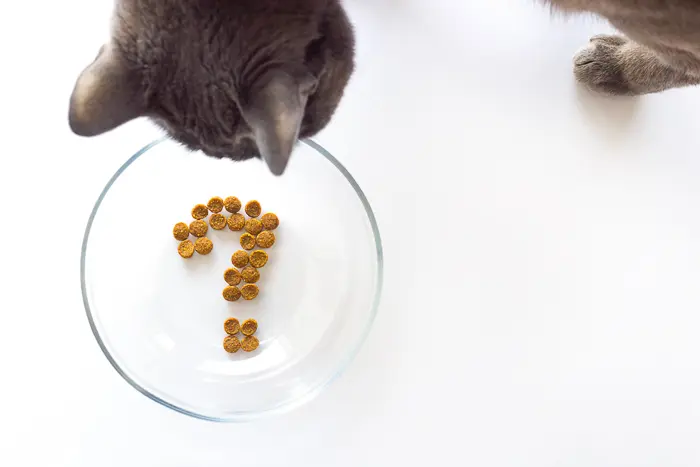Feeding cats wet food is a common practice among pet owners, but it raises an important question: how long is it safe for wet cat food to sit out? This guide aims to clarify best practices for handling wet cat food, ensuring both safety and enjoyment for your feline companions.
- Understanding Wet Cat Food
- Shelf Life of Wet Cat Food
- Safety Concerns with Wet Cat Food
- Recommended Time Frame for Leaving Wet Cat Food Out
- Storing Leftover Wet Cat Food
- Signs of Spoiled Wet Cat Food
- Alternatives to Leaving Wet Cat Food Out
- Feeding Schedule Tips for Wet Food
- Maintaining a Clean Feeding Area
- Understanding Your Cat’s Eating Habits
Understanding Wet Cat Food
Wet cat food, often preferred for its high moisture content and palatability, differs significantly from dry kibble. It’s an excellent source of hydration and can be especially beneficial for cats who don’t drink enough water.
Shelf Life of Wet Cat Food
Unopened wet cat food typically has a shelf life of about two years. Once opened, however, the food is exposed to air and environmental factors, reducing its shelf life and making prompt storage necessary.
Safety Concerns with Wet Cat Food
Leaving wet cat food out for too long can lead to bacterial growth, posing health risks to cats. Bacteria such as Salmonella and Listeria thrive in moist, nutrient-rich environments, particularly in warmer conditions.
Recommended Time Frame for Leaving Wet Cat Food Out
The safe time frame for leaving wet cat food out is generally about four hours at room temperature. In warmer climates, this time should be reduced to two hours, while cooler conditions might allow a slightly longer period.
Storing Leftover Wet Cat Food
Refrigerating leftover wet cat food in a sealed container is essential for maintaining its freshness. Stored correctly, it can last up to five days. When serving chilled food, warming it to room temperature can make it more appealing to your cat.
Signs of Spoiled Wet Cat Food
Identifying spoiled food is key to your cat’s health. Spoiled wet cat food may exhibit an off-smell, discoloration, or a slimy texture. If in doubt, it’s best to err on the side of caution and discard it.
Alternatives to Leaving Wet Cat Food Out
Feeding smaller portions more frequently can prevent waste. Automatic feeders with ice packs are also a great solution for keeping wet food fresh when you can’t feed your cat in person.
Feeding Schedule Tips for Wet Food
A consistent feeding schedule, like twice-daily feedings, helps ensure your cat consumes their food while it’s fresh and minimizes the risk of leaving food out too long.
Maintaining a Clean Feeding Area
Regular cleaning of your cat’s feeding area and bowls is essential to prevent the buildup of bacteria and to keep the feeding environment hygienic.
Understanding Your Cat’s Eating Habits
Observing your cat’s eating patterns can help you determine the right portion sizes and reduce the chances of leftover food sitting out.
FAQs Section
Can wet cat food be refrigerated after opening?
Yes, refrigerate any unused wet cat food in a sealed container to maintain its freshness.
How can you tell if wet cat food is still good to eat?
Look for any signs of spoilage like a bad odor, change in color, or slimy texture. When in doubt, discard the food.
Can you leave wet cat food out overnight?
It’s not recommended to leave wet cat food out overnight due to the risk of bacterial growth.
Should you warm up refrigerated wet cat food before serving?
Warming refrigerated wet cat food to room temperature can make it more palatable for your cat. Ensure it’s not too hot before serving.
Is wet cat food better than dry food for cats?
Both wet and dry foods have their benefits. Wet food is excellent for hydration, while dry food can be better for dental health. A combination can offer a balanced diet.
How do you store open wet cat food cans?
Store opened cans in the refrigerator with a lid or in a sealed container. Avoid leaving the food in the open can to prevent metal leaching and taste alteration.
Conclusion
Proper handling and storage of wet cat food are crucial for the health and safety of your cat. By following these guidelines, you can ensure your cat enjoys their meals without any health risks, and you can minimize food waste.

Jane Doe, a veterinarian with over 10 years of experience, combines her deep knowledge of animal health with a passion for pet welfare at PetsPonder.com. With a DVM degree and a commitment to the latest in veterinary science, Jane Doe offers reliable, compassionate advice to help pet owners make informed decisions for their furry companions.

Leave a Reply